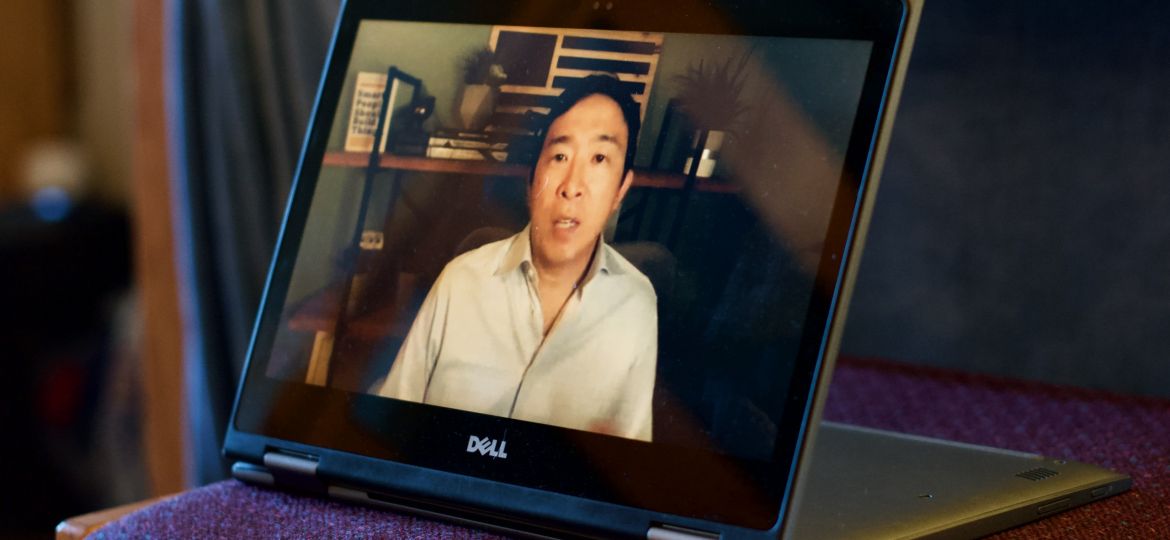
The Institute of Freedom and Community (IFC) hosted former presidential candidate Andrew Yang for a conversation with Director of the Institute Edmund Santurri on Sept. 1. The conversation was streamed for community members to watch live or through the Broadcast Media archive.
During his initial campaign for the Democratic presidential nomination, Yang was a newcomer to politics. He was ultimately overshadowed by his colleagues with more political experience: Massachusetts senator Elizabeth Warren, former Vice President Joe Biden, and Vermont senator Bernie Sanders. Fifteen months into his campaign, Yang dropped out of the race, and he later offered support for Democratic nominee Joe Biden and running partner Kamala Harris, a senator from California.
Since dropping out of the presidential race, Yang has appeared on podcasts and national news programs, and he was invited as a speaker at the Democratic National Convention in September.
Yang stands out from other candidates because of his policy surrounding universal basic income, which would entail giving every American adult $1,000 per month as part of a universal basic income mandate. This policy, called the ‘Freedom Dividend’ by Yang, has only grown in popularity as Americans face mass unemployment resulting from the pandemic.
When asked about the matter, Yang dryly joked that after COVID-19, “We are all ‘Yang Gang.’”
“Yang Gang” served as a rallying call amongst his supporters during his campaign.
When speaking to the St. Olaf community, Yang emphasized finding commonalities between individuals, claiming that cancel culture would do nothing but exacerbate wounds inflicted on either side of the political spectrum.
And for many members of the St. Olaf community, finding commonalities is exactly what Yang has accomplished.
Evan Faas ’22, former president of the student organization Oles For Yang, pointed toward Yang’s recent emergence as a figurehead of open discussion and commended the former candidate’s ability to draw people together regardless of political affiliation.
Ariel Byerly ’21, vice president of the College Republicans, was pleasantly surprised by the candidate and his frank, unconventional ideas. Like Yang and his supporters, Byerly also believes that rank choice voting could serve as, for lack of a better term, a democratic diuretic. For Byerly, rank choice voting could also solve the massive dilemma currently plaguing republicans: the question of whether to vote for Trump.
Despite the Republican party’s conservative mindset, many aren’t too pleased with the president, including Byerly herself.
“If there were more options available, we wouldn’t be seen in the negative light we are now,” Byerly said.
Instead, she finds herself in a rut. Her voice resonates closely with that of Yang himself. Like him and many others across the nation, she believes that the American political system “could use some work.”
allbro1@stolaf.edu

